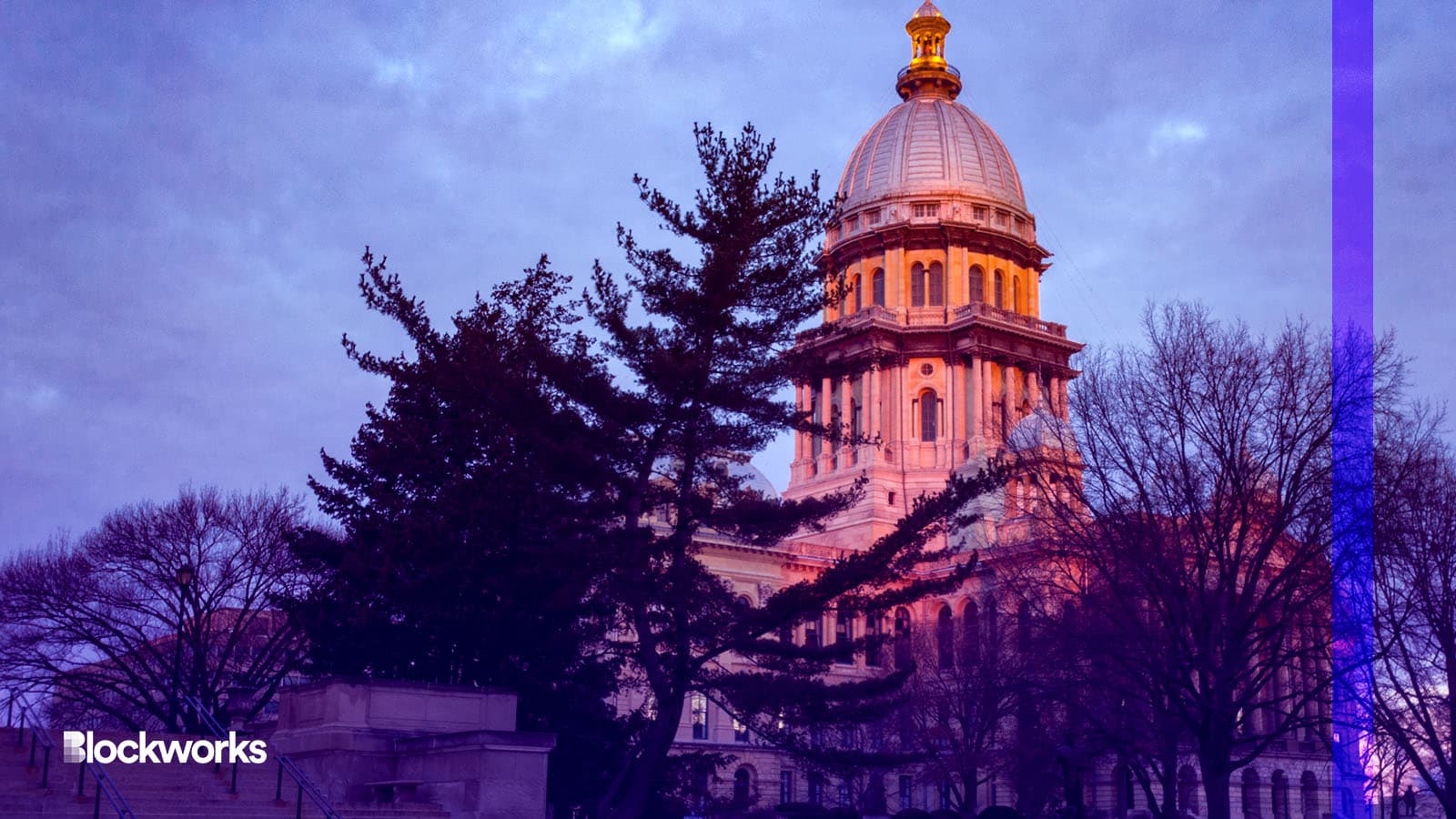Is Illinois the Next New York? Inside the New IL Crypto Bill.
Similar to a BitLicense, Illinois wants crypto companies to register

Source: Shutterstock / E Fehrenbacher, modified by Blockworks
A bill in Illinois to revamp the state’s crypto licensing requirements advanced Wednesday evening, putting crypto companies on notice.
The Fintech-Digital Asset Bill requires exchanges and crypto businesses to obtain a license from the Illinois Department of Financial and Professional Regulation. The bill also outlines new risk protection and disclosure requirements for companies engaging with crypto.
The licensing requirements apply to businesses that facilitate crypto trading, crypto custodians, and any business “engaging in digital asset administration,” the bill text read. Licensed entities can also not store or facilitate trading of stablecoins unless the stablecoin is issued by an FDIC insured institution or another registered issuer and the issuer has fully-backed reserves at all times.
Under the proposed law, exchanges are also required to submit documentation before listing assets to disclose any risks of the asset being considered a security and any conflicts of interest with the exchange and token. Additionally, exchanges must conduct a “comprehensive risk assessment designed to ensure consumers are adequately protected.”
“We do see a very active crypto and digital asset industry,” David DeCarlo, Illinois’ first regulatory innovation officer, said during an appearance on CNBC. “We are talking with New York…to try to put forth a regime that would complement what is happening in other states. We are not trying to reinvent the wheel, we want to be able to work with other regulators and then raise the bar nationally.”
The motivation behind the legislation is consumer protection, DeCarlo added, especially given the recent collapse of several crypto firms.
The major concern for crypto companies with operations in Illinois is that if the bill is passed, they will only have a matter of weeks to submit application materials for approval before the law is enforced, according to Web3 community group Alliance said.
If businesses are approved for a digital asset license in Illinois, the bill allows the state to access books and records and pass along relevant information to appropriate enforcement agencies.
The licensing requirements are reminiscent of New York’s BitLicense law passed in 2015. Any exchanges, issuers or custodians wishing to operate within the state are required to apply for the license.
As of Feb. 10, New York has issued virtual currency licenses to a total of 24 companies, including Paxos, Genesis and Coinbase. The New York Department of Financial Services, which oversees BitLicense issuance, did not respond to Blockworks’ request for comment about the timeline for approval or how many applications the regulator has received.
New Jersey, once a safe haven for crypto firms fleeing New York, is also proposing a licensing requirement that takes the BitLicense one step further when it comes to crypto custody. A licensee offering digital assets custody must maintain “an amount of each type of digital assets sufficient to satisfy the aggregate entitlements of the persons to the type of digital asset,” the proposed bill states.
Illinois’ bill moved forward in the state House, Wednesday, after being introduced in mid-February. It is now on the calendar for a second reading and short debate.
Get the news in your inbox. Explore Blockworks newsletters:
- The Breakdown: Decoding crypto and the markets. Daily.
- 0xResearch: Alpha in your inbox. Think like an analyst.






